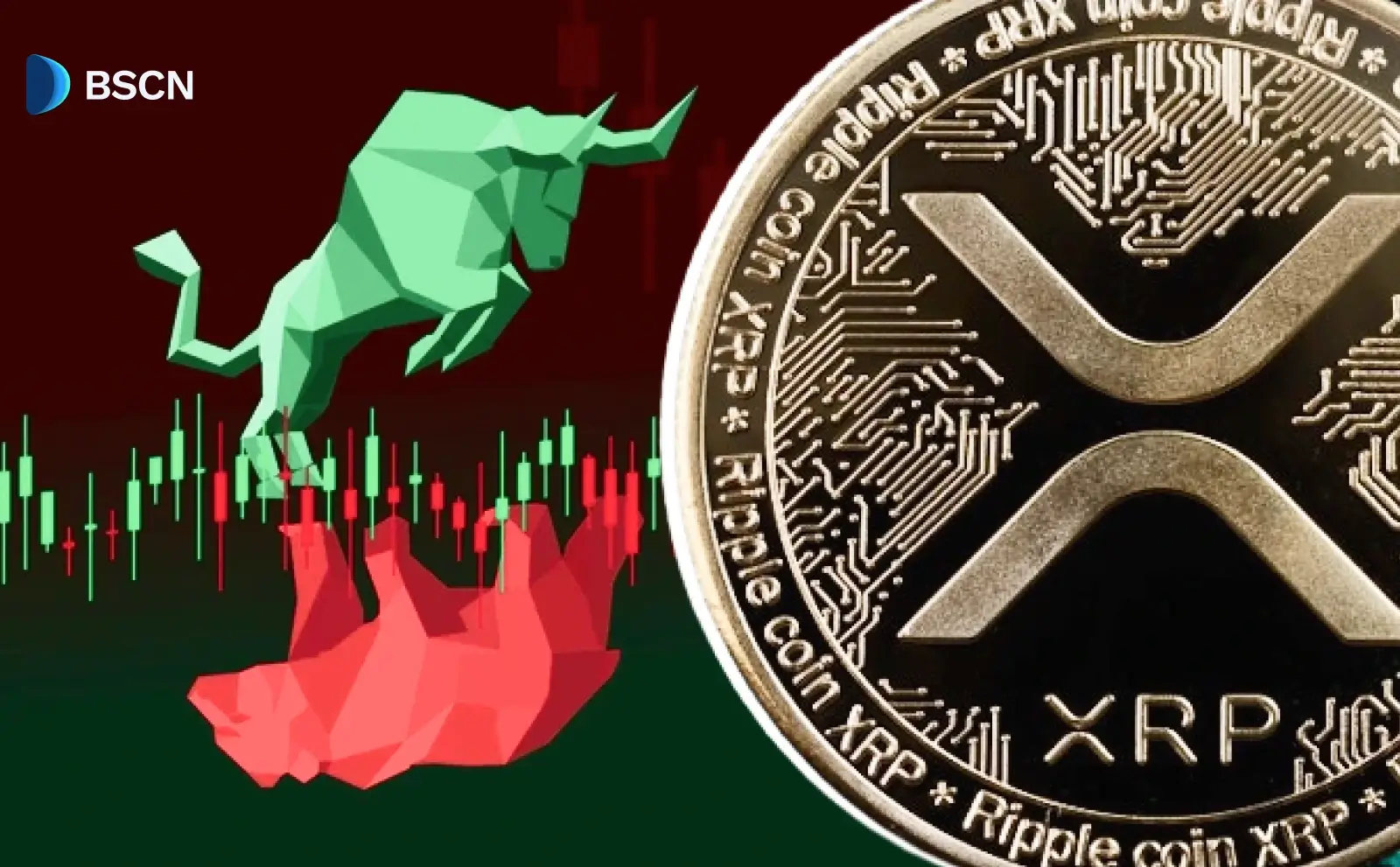Avalanche Backs South Korea’s NH NongHyup Bank in Blockchain-driven VAT Refund Trials

NH NongHyup Bank partners with Avalanche, Fireblocks, Mastercard, and Worldpay to test blockchain-based VAT refunds using stablecoin settlement.
Soumen Datta
November 13, 2025
Table of Contents
South Korea’s NH NongHyup Bank has partnered with Avalanche, Fireblocks, Mastercard, and Worldpay to launch a proof of concept (PoC) aimed at digitizing value-added tax (VAT) refunds for foreign tourists, per Business Korea.
The project, announced on November 12, 2025, will test how blockchain and stablecoin infrastructure can replace the paper-heavy refund process with a near-instant, automated system powered by smart contracts.
According to NH NongHyup, the trial does not involve real customer data or money. Its sole purpose is to verify the technical and operational feasibility of the system.
A New Approach to Tourist VAT Refunds
The VAT refund system allows foreign tourists to reclaim taxes—typically 10%—on eligible purchases when taking goods out of South Korea. Currently, the process involves long queues, multiple forms, and manual verification at airports.
NH NongHyup Bank’s PoC seeks to automate this entire process. By using the Avalanche blockchain, refunds can be managed through smart contracts that record and execute transactions instantly once conditions are met.
Stablecoins will serve as the settlement mechanism between institutions, offering faster and more transparent currency conversion without relying on traditional payment intermediaries.
In essence, the model uses blockchain’s core advantages—immutability, transparency, and automation, to reduce paperwork, shorten waiting times, and eliminate errors or refund losses.
The Role of Avalanche and Key Partners
Avalanche provides the blockchain infrastructure for the project. Known for its low latency and high throughput, Avalanche’s subnet architecture allows regulatory-compliant environments tailored to financial institutions like NH NongHyup Bank.
The collaboration includes:
- Fireblocks: Providing digital asset custody and secure transaction management.
- Mastercard: Offering expertise in cross-border payment frameworks and interoperability.
- Worldpay: Enabling payment processing and settlement support for the pilot.
Under this PoC, smart contracts on Avalanche will automate VAT refunds by executing logic once preset conditions are satisfied—such as a verified purchase and departure record.
Stablecoins will be used to simulate settlements between involved parties, such as banks, merchants, and tax authorities. This enables near-instant fund movement without the delays or costs of legacy payment rails.
Importantly, this system is being developed within a controlled, regulatory-compliant network to ensure that any future expansion aligns with financial authority standards.
While no real customer data or funds are being used, this setup allows developers and regulators to test performance, scalability, and compliance before public rollout.
Institutional Adoption and Technical Evaluation
At the 2025 Singapore Fintech Festival, NH NongHyup Bank presented its blockchain-driven VAT refund model during the Insight Forum. The project drew international attention as a leading example of integrating financial compliance with blockchain efficiency.
The technical evaluation phase of the PoC will measure:
- Processing time for refund settlements.
- Scalability of smart contract execution under real-world transaction volumes.
- Interoperability between banks, merchants, and regulatory systems.
- Security in handling sensitive transactional data.
If successful, the model could extend to other financial workflows such as cross-border settlements, remittances, and domestic refund services.
Beyond VAT: Stablecoin-Based Payments on the Horizon
While this pilot focuses on tourist refunds, NH NongHyup Bank has broader ambitions. It plans to test stablecoin-based payment and refund services that align with South Korea’s forthcoming regulatory standards.
The bank’s future vision includes:
- Cross-border settlements: Faster, low-cost remittance solutions.
- Retail integration: Enabling merchants to receive stablecoin-based payments directly.
- Inter-bank interoperability: Simplifying settlements between domestic and global partners.
These initiatives are part of the bank’s larger strategy to digitize payment infrastructure using blockchain while ensuring compliance with financial regulations.
Why It Matters for South Korea’s Tourism Economy
In 2024, South Korea welcomed around 16.37 million international tourists, a 48.4% increase from the previous year. The surge has renewed focus on improving travel-related financial services, especially refunds and cross-border payments.
NH NongHyup Bank’s pilot directly addresses the inefficiencies foreign visitors face when claiming VAT refunds.
Executive Vice President Choi Woon-jae stated that the stablecoin-based model shows how blockchain can improve customer experience and national competitiveness. The bank aims to lead the digital transformation of Korea’s tourism economy by improving payment and settlement processes.
The institution plans to explore broader applications of stablecoins in domestic and international payment systems once the regulatory framework is finalized.
Stablecoins and South Korea’s Regulatory Push
This PoC comes as South Korea moves closer to establishing a comprehensive legal framework for stablecoins.
The Financial Services Commission (FSC) intends to submit a government-sponsored stablecoin bill by the end of 2025. This will join five other proposals currently under review in the National Assembly.
The Bank of Korea (BoK) and the FSC are debating which authority should oversee stablecoin issuance. The central bank argues that only licensed banks should issue Korean won-pegged stablecoins to preserve monetary stability, while private institutions advocate for a more open model that includes fintech issuers.
NH NongHyup’s pilot aligns closely with these developments. It provides a real-world test case for how stablecoins could function within South Korea’s financial ecosystem—particularly in compliance-heavy use cases like tax refunds.
Conclusion
The NH NongHyup Bank and Avalanche collaboration represents a focused step toward practical blockchain adoption in South Korea’s financial infrastructure.
By digitizing VAT refunds through smart contracts and stablecoin settlements, the bank aims to reduce friction, improve efficiency, and provide faster services for the growing number of foreign tourists visiting the country.
While the PoC remains in testing and does not involve real funds, it signals how blockchain and stablecoin systems can operate within regulatory boundaries.
If proven viable, this model could serve as a reference for banks exploring digital settlement systems in both domestic and international contexts — positioning South Korea as a key player in blockchain-enabled finance.
Resources:
NH Nonghyup Bank Launches Stablecoin VAT Refund Pilot - report by Business Korea: https://www.businesskorea.co.kr/news/articleView.html?idxno=256406
Korea in final phase of introducing stablecoin: FSC chairman - report by Korea Times: https://www.koreatimes.co.kr/economy/cryptocurrency/20251020/korea-in-final-phase-of-introducing-stablecoin-fsc-chairman
South Korea tourism surges in 2024 with record spending and arrivals - report by The Korea Herald: https://www.koreaherald.com/article/10412971#:~:text=The%20rise%20in%20spending%20reflects,to%20just%20970%2C000%20in%202021.
South Korea's NH NongHyup Bank pilots stablecoin-led tax refunds on Avalanche - report by The Block: https://www.theblock.co/post/378286/nh-nonghyup-stablecoin-tax-refund-avalanche
Read Next...
Frequently Asked Questions
What is NH NongHyup Bank’s VAT refund pilot with Avalanche?
It’s a proof of concept to test blockchain-based automation of VAT refunds for tourists using Avalanche’s smart contracts and stablecoin settlements.
Will this system use real customer funds?
No. The pilot uses simulated data and tokens to validate the technology’s performance, security, and compliance before any public rollout.
Why is Avalanche involved in the project?
Avalanche provides the blockchain infrastructure for the pilot, supporting secure, compliant, and scalable smart contract operations tailored for institutional use.
Disclaimer
Disclaimer: The views expressed in this article do not necessarily represent the views of BSCN. The information provided in this article is for educational and entertainment purposes only and should not be construed as investment advice, or advice of any kind. BSCN assumes no responsibility for any investment decisions made based on the information provided in this article. If you believe that the article should be amended, please reach out to the BSCN team by emailing [email protected].
Author
 Soumen Datta
Soumen DattaSoumen has been a crypto researcher since 2020 and holds a master’s in Physics. His writing and research has been published by publications such as CryptoSlate and DailyCoin, as well as BSCN. His areas of focus include Bitcoin, DeFi, and high-potential altcoins like Ethereum, Solana, XRP, and Chainlink. He combines analytical depth with journalistic clarity to deliver insights for both newcomers and seasoned crypto readers.
Crypto Project & Token Reviews
Project & Token Reviews
Comprehensive reviews of crypto's most interesting projects and assets
Learn about the hottest projects & tokens

















